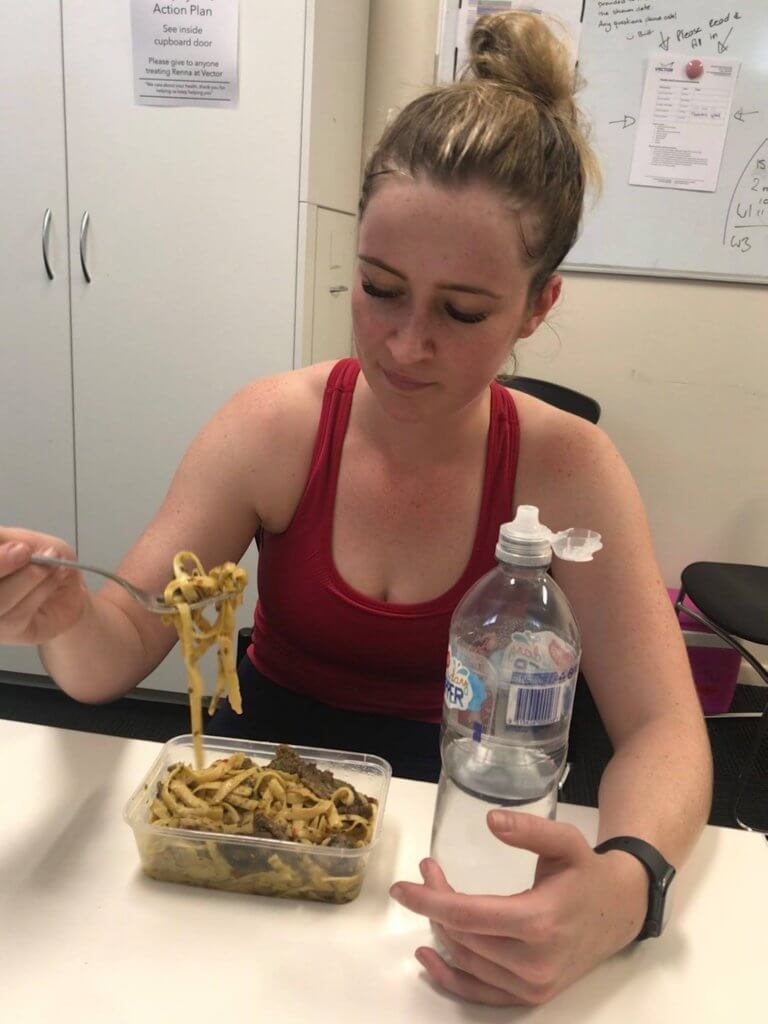Looking back at my 5 years at university, one of the areas I would say I had the MOST improvement/growth was my cooking skills and food knowledge. My first year of Brisbane my diet consisted of about 3 meals
2 minutes noodles – the chicken flavour don’t even TRY and tell me the beef is better. It’s not.
Butter Chicken – Canned Sause, chicken and rice
Spaghetti Bolognaise – Beef Mince, canned sauce, pasta.
Needless to say, I put on a lot of weight, my acne was awful, I wasn’t performing well in my workouts, was tired and I found it harder to concentrate on study than I did in high school. Most of this was because I didn’t know how to “afford” a healthy diet.
Over the following years, from the many people I met and places I lived, I found different ways to be healthy whilst on a budget.
TIP #1: Do NOT shop when you are hungry.
An easy and self-explanatory tip. But I cannot express how many times I spent an extra $60-80 at the grocery store on food I really thought I would eat, and then just didn’t.
Tip #2: Slow Cookers
University student can be time poor. Especially when you start having to juggle full time placement hours and university assignments. Chucking something in the slow cooker and coming back to it 10-12 hours later meant I was able to have good nutritious meals and not spend a crazy amount of time in the kitchen.
When slow cooking, I would tend to put 1.5kg of meat in at a time. Divide it up afterwards, and freeze it in 1-2 serve portions – you can then space out the meals so you don’t get sick of the same thing. It was always good thinking you had no food and finding a hidden gem in the freeze after a hard day of placement.
Tip #3: Pre-Planning.
And I don’t mean for the week ahead. I mean for the MONTH ahead. Before my first 6-week practicum I spent the Saturday before bulk cooking 5-6 different recipes. I picked meals that contained some of the same ingredients so that I didn’t end up with heaps of leftovers, spent maybe $200-$250 at the grocery store, but those meals lasted me 4-5 weeks. It was as easy as waking up, putting a meal in the lunch box and off you go.
TIP #4: Spices and Sauces
Spices and flavour are everything. They can be the difference between getting excited about your food, or avoiding it and getting a take-out meal instead. Personally, I am a big fan of the “Buffalo” Hot sauce and Nando’s PeriPeri. Yes, it’s a couple extra carbs, but that’s still better than a McChicken at Maaccy-D’s.
TIPE #5: Protein Replacements
Eggs and Tuna are a super cheap way to get your protein intake up. Being natural food sources the actual protein molecules in them are better quality than a protein shake, and it will keep you fuller for longer. Boiled eggs with some hot sauce were a crowd favourite in my university group. A can of tuna, ½ an avocado, pepper and salt smashed onto a rice cracker is a super cheap and filling meal, that doesn’t need to be refrigerated if you are planning a full day in the library to study.
TIP #6: the freezer
When your only buying/cooking for one, its really easy to have food constantly go off. That’s a lot of wasted money and resources. The freezer is your best friend. Even things like buying frozen veggies instead of fresh ones can make small differences when you are on a budget. Coles and Woolworths have frozen veggies that have severing sizes divided up already. Wack them in the microwave, along with a serve of rice and some left over chicken/slow cooked brisket from earlier in the week, and you have a super simple, easy end of the week meal.
– Bridget Nash | Exercise Physiologist

